Ukraine's traumatised soldiers struggle with civilian life
- Published
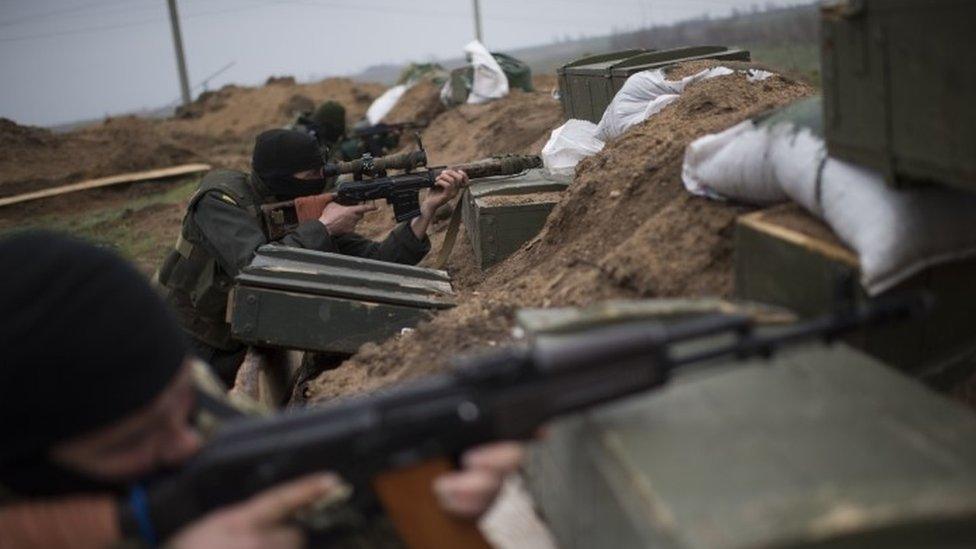
Ukrainians are largely unfamiliar with post-traumatic stress disorder (PTSD)
Sergiy Goptarev says he wants to leave his time fighting in eastern Ukraine behind him. But he is finding it difficult. The memories arrive like uninvited visitors.
Now a civilian, he can be seized by an anxiety attack when he goes past a wooded area on public transport. He is gripped by the fear that fighters could spring from the trees and attack.
The war in the east against pro-Russian militants is the first on Ukrainian territory since World War Two. Tens of thousands of the country's citizens have served in a conflict that has left some 9,000 people dead and more than 20,000 wounded, according to the UN, external.
Untold numbers, like Sergiy, have lingering psychological wounds.
Bad memories
Sergiy was drafted and fought for four months at the end of last year in the east. His unit kept open a vital supply line to soldiers fighting at Donetsk airport, at the height of one of the conflict's most vicious battles.
"We did everything we could to help them," he says.
Sergiy Goptarev spent four months on the front line in eastern Ukraine
Sergiy is back home now, having received his discharge at the beginning of the year.
The bad memories come at night. "I don't sleep much, three to four hours," he says. "I wake up and I can't remember if I dreamed something or not. But I have this feeling as if I fell from somewhere.
"I lie there, not understanding what happened. This lasts about 15 seconds, and then I understand that everything's okay," he adds. But after that he finds it hard to get back to sleep.
The condition that he and his comrades suffer from is commonly called post-traumatic stress disorder, or PTSD.
For much of Ukrainian society it is not a familiar condition. And that goes for the soldiers too.
During the Soviet era, there was some recognition of what was called "Afghan syndrome" among veterans of the 10-year war that began in 1979, but few understood actually what was involved, and how it could be treated.
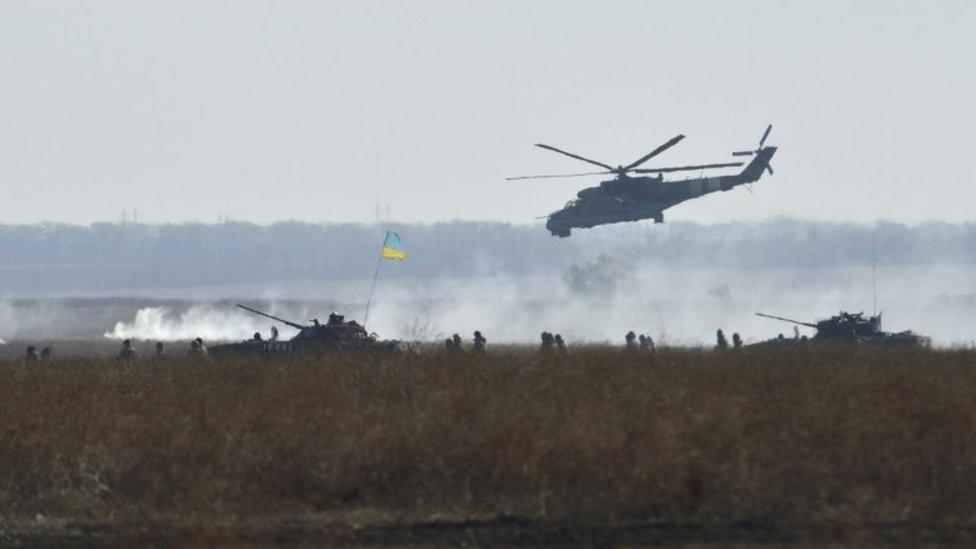
The trauma of war can often leave soldiers with bad memories that do not easily disappear
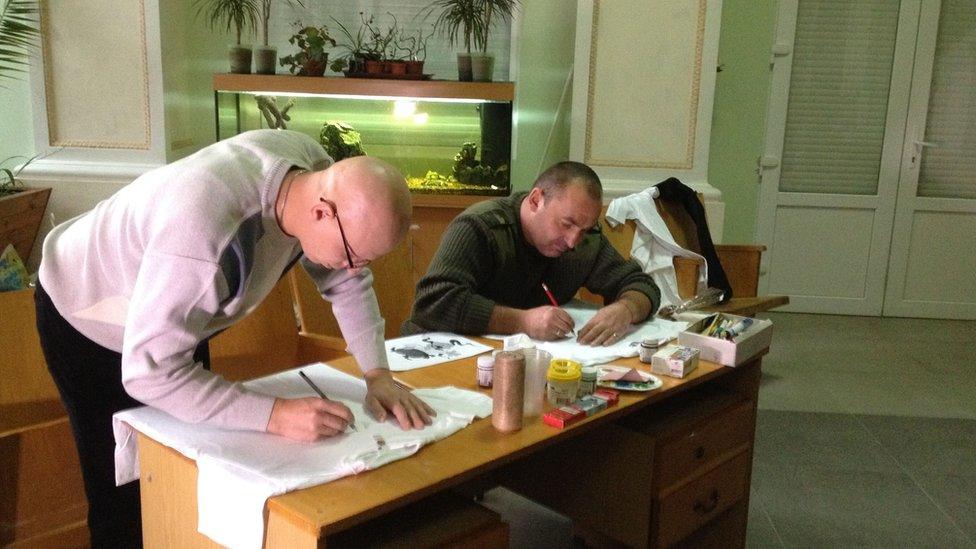
A variety of organisations try to help Ukrainian servicemen re-integrate into society
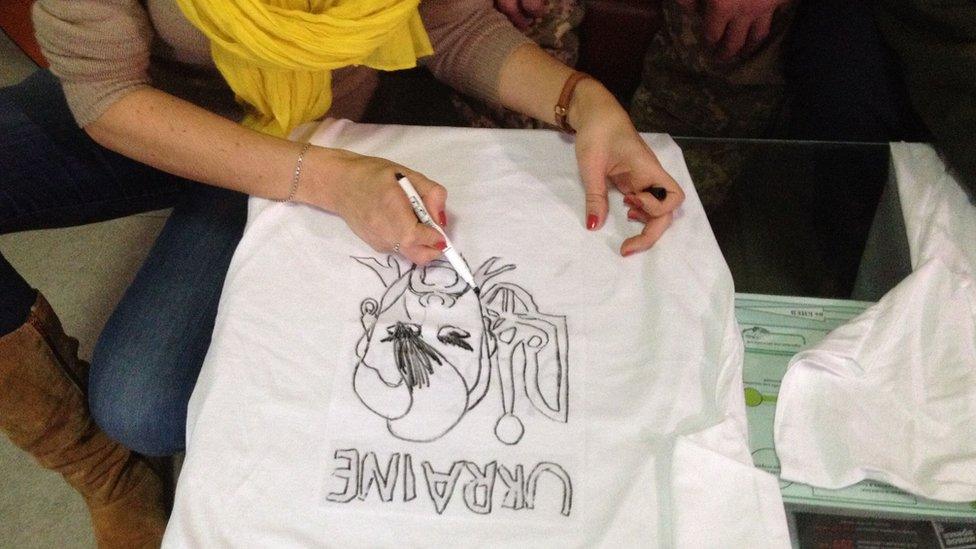
Art therapy sessions encourage participants to paint patriotic images on t-shirts

Post-traumatic stress disorder
PTSD is an anxiety disorder caused by witnessing or being involved in a frightening or distressing event.
Any traumatic event has the potential to lead to PTSD.
Trauma of migrant crisis takes its toll on mental health
The 'living nightmare' of PTSD
UK National Health Service: Causes and treatment of PTSD, external
US National Institute of Mental Health: What is PTSD?, external

Symptoms of PTSD can include depression, sudden eruptions of anger, heavy drinking or sleeplessness.
In the most serious instances, soldiers can harm themselves or those closest to them.
Mental health workers speak of an increase in domestic violence, although there are no statistics to confirm this, and it is difficult to establish a direct causal link to PTSD.
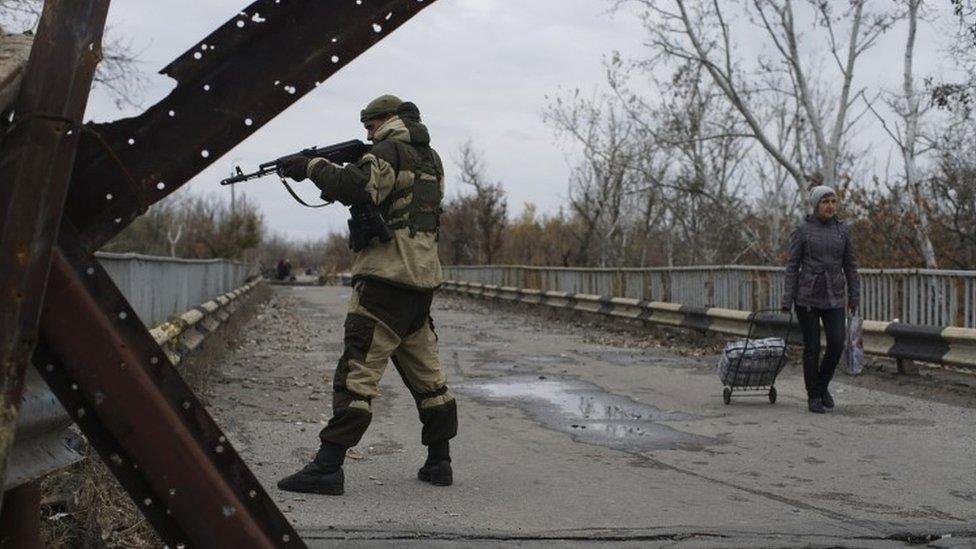
Many veterans are gripped by the fear that fighters could once again suddenly attack them
The soldiers are loath to admit that they are suffering emotionally.
Among Ukrainian men there is a general attitude that to acknowledge personal difficulties is tantamount to saying that you are weak.
"When our tooth hurts, we go to a dentist," says Vladimir Nezenets, a psychological therapist. "When we have emotional problems, we grab a bottle of vodka."
Vladimir, himself a veteran of the war in the East, believes every fighter returning from the front exhibits some form of PTSD. "They all are suffering - it's just a matter of degree. And this depends largely to what extent the person was psychologically prepared for what would come," he says.
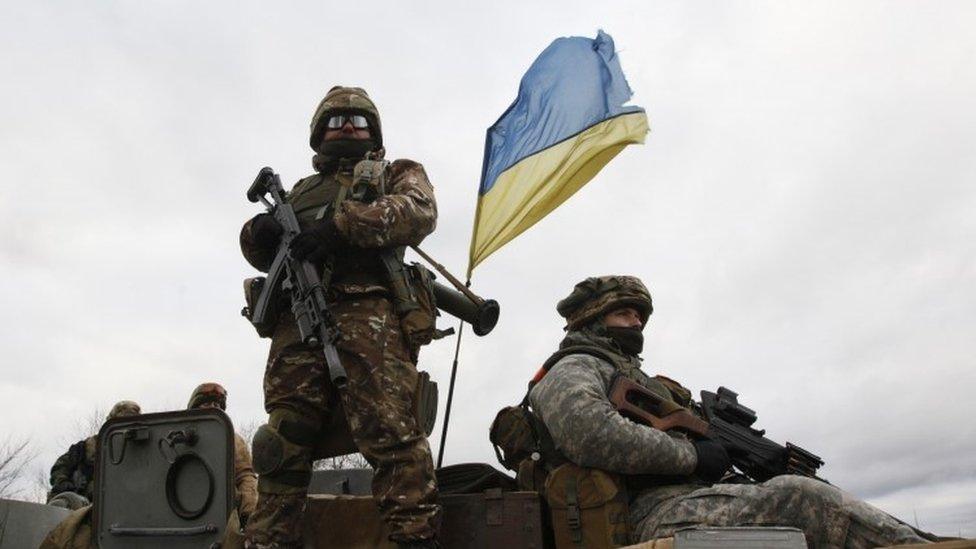
The war in the east against Russian-supported militants is the first on Ukrainian territory since World War Two
The scale of the problem seems to have left the authorities scrambling, though. Vladimir and other health workers say the government's response so far has fallen way short of what is needed, with only a handful of clinics and specialists providing assistance.
Canine therapy
Parliament deputies recently voted to set up universal testing for all fighters returning from the front, but many question whether this is feasible.
Consequently, civic organisations have stepped in to fill in the gaps.
Vladimir is associated with a non-profit group called Hero's Companion - which works with Canadian and German organisations - that trains dogs to be round-the-clock helpers to the veterans.
The dogs do small tasks, or are a calming influence. If a PTSD sufferer has a panic attack, the dog will lay his head on the soldier's lap, or even lie on him.
The dogs are still being trained for their individual assignments. But some veterans meet in informal sessions with regular dogs, which Hero's Companion activists say also has a positive stimulus.
"We had fighters from the 95th brigade here and they played and lay on the grass with the dogs," said Anatoly Trubchaninov, one of the group's directors, at their kennel-base outside Kiev. "They came as serious, severe men, and left here smiling like little children."
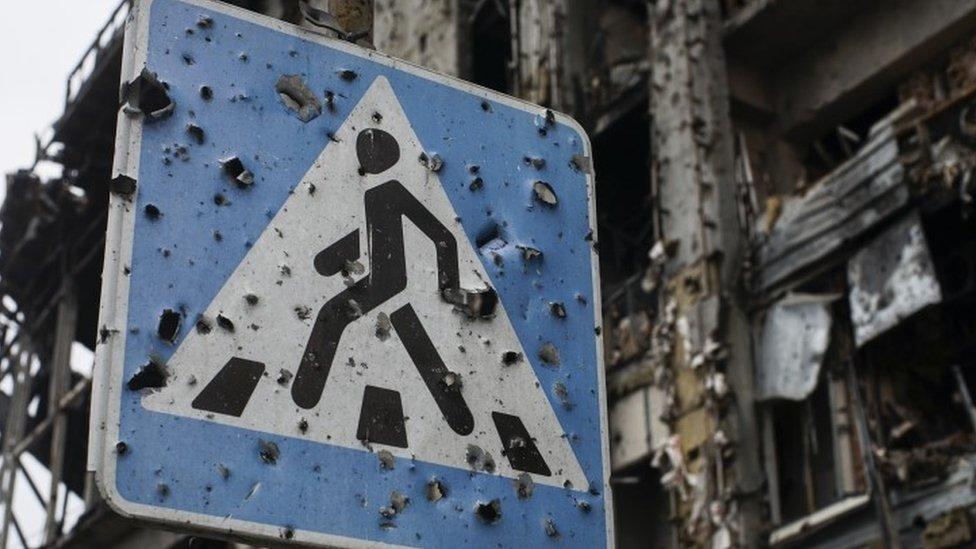
Sergiy's unit kept open a vital supply line to soldiers fighting at Donetsk airport
Sergiy Goptarev finds assistance with a group called Palm of an Angel, which organises therapy through art classes, as well as concerts, fishing and horseback riding.
Recently, he and five other former soldiers gathered in the main building of a Soviet-era holiday camp near Kiev. They beat sticks together, sang upbeat songs and painted patriotic images on t-shirts.
Life is still hard for the veterans and Sergiy, who is now unemployed, spends much of his time at home surfing the internet.
But their memories and personal worries, at least for that moment, were put aside.
"The therapy helps distract you," Sergiy said. "When you do something fun, it brings a smile to your face and creates positive emotions."